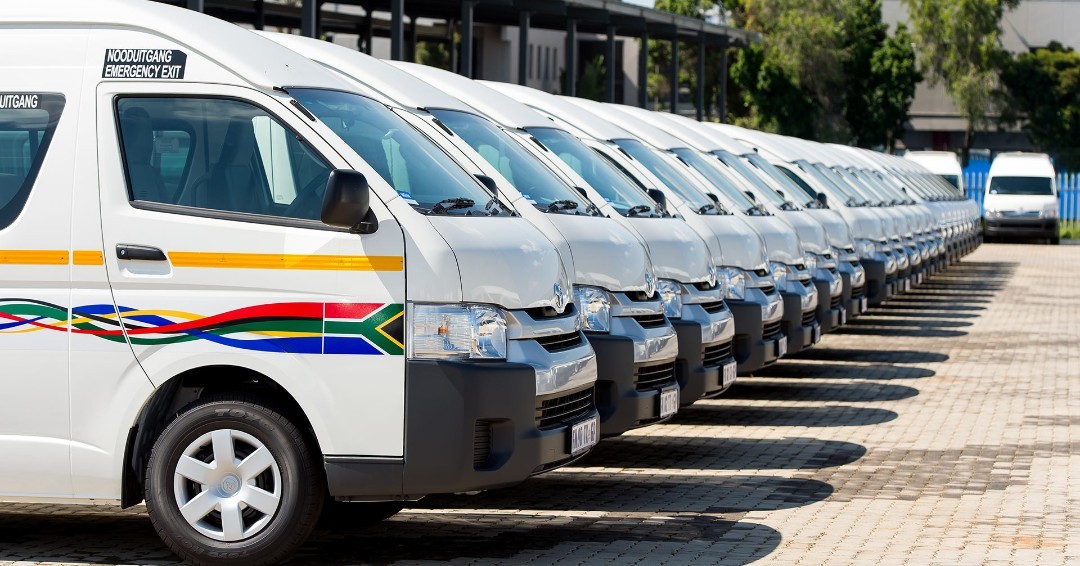Business
Barbara Creecy Calls for Urgent Reform in SA’s Taxi Industry Amid Mounting Violence

The sound of gunfire at a Western Cape taxi rank last week has once again put South Africa’s long-troubled taxi industry under the spotlight. Four people lost their lives in a dispute believed to be tied to competing taxi associations. Now, Transport Minister Barbara Creecy is drawing a clear line in the sand: the informal, often chaotic way the industry operates cannot continue.
Speaking candidly on Newzroom Afrika, Creecy didn’t mince words: “It brings the industry into disrepute, and it poses a danger to commuters.” Her message to the nation? South Africa’s taxi industry must be formalised urgently.
The people’s transport, stuck in the past
It’s hard to overstate just how central taxis are to everyday life in South Africa. An estimated 80% of commuters millions of people rely on minibus taxis to get to work, school, and healthcare. The sector is 100% black-owned and represents not just a vital public service, but a cornerstone of black entrepreneurship.
And yet, despite its size and impact, the industry remains largely unregulated. Many taxis operate as sole proprietorships, often without formal contracts, benefits for workers, or tax compliance. This lack of structure creates fertile ground for corruption, competition-fuelled violence, and inconsistent service standards.
Violence exposes deeper fractures
The latest bloodshed at the Emfuleni taxi rank, reportedly linked to a route dispute between rival groups CATA and CODETA, is part of a tragic pattern. From Gauteng to the Western Cape, turf wars over lucrative routes have turned deadly. It’s a symptom of an industry still governed more by rivalry than regulation.
Minister Creecy sees formalisation not just as a fix for efficiency, but as a matter of life and death. “We can’t continue this way,” she said.
Industry agrees: Progress too slow, but not impossible
In a rare moment of alignment, the South African National Taxi Council (Santaco) echoed the Minister’s frustration. “The pace at which efforts to formalise the taxi industry are going is concerning,” said Santaco national spokesperson Mmatshikhidi Rebecca Phala. She referred back to the 2020 National Taxi Lekgotla, where key reforms were agreed upon but have yet to gain meaningful traction.
Phala stressed that some changes are underway. From training programmes for drivers and marshals, to automated fare systems and security initiatives, efforts are being made. “We are hard at work,” she said, adding that Santaco is committed to transforming how the industry operates.
One promising development is the push for cooperatives. Instead of each taxi being a standalone business, operators are being grouped under collective ownership models. This means formal employment for drivers, adherence to labour laws, and greater tax and financial transparency.
A system overdue for overhaul
Creecy is calling on government departments, private partners, and taxi associations to roll up their sleeves and get serious about systemic reform. That means modernising not just the structure of ownership, but also safety standards, oversight mechanisms, and alternative income streams to reduce violence.
Phala agrees that turf wars are ultimately about survival in an overcrowded market. To help operators branch out, Santaco is exploring value-chain ventures like the sale of vehicle parts, lubricants, and fuel.
Social media reacts: “Why did it take so long?”
Online, the Minister’s remarks sparked debate. Some praised her for taking a stand, but others questioned why action had taken so long. “It’s 2025 and people still die over taxi routes?” read one frustrated tweet. Another said, “Formalising the taxi industry should have been done a decade ago. How many more lives must we lose?”
What’s next for commuters?
For the average South African commuter, the issues can feel distant until a strike strands them or violence erupts in their neighbourhood. But these behind-the-scenes battles affect everything, from route availability to pricing to whether your child gets to school safely.
The good news? There’s political will, industry acknowledgment, and a growing awareness that things must change. The bad news? Time is running out.
If Minister Creecy’s message lands where it needs to, 2025 might finally be the year that South Africa’s taxi industry turns the corner from chaos to credibility.



























